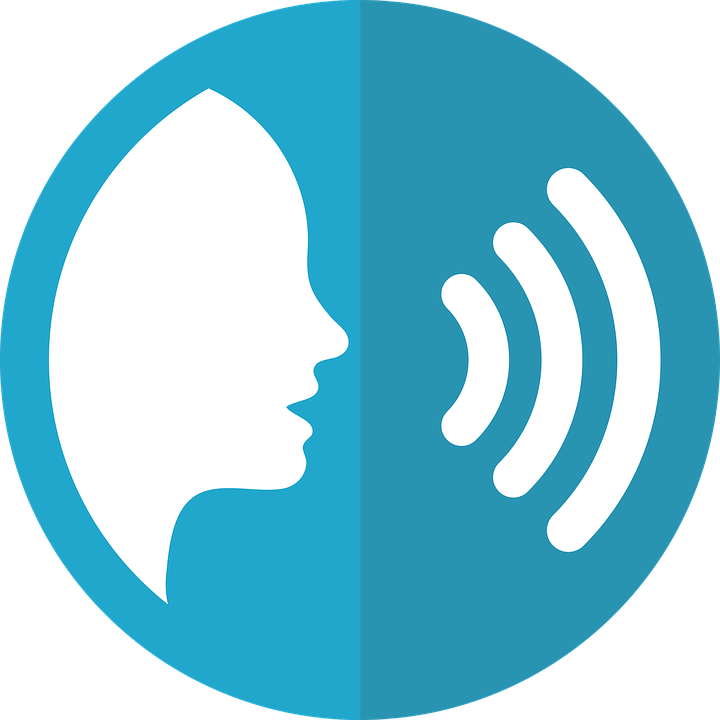Talking to oneself / Hablar con uno mismo
Life is just thoughts, images, and feelings running through your mind, while you're relaxing in the bathtub, cooking onions in the kitchen, or ready for an essential interview to begin. When human beings are asked about their internal life, they regularly say it incorporates a lot of words. Psychologists use the term "inner talk" to describe the phenomenon in which human beings talk to themselves silently, in their minds. Another similar phenomenon is "private speech", in which people speak to themselves aloud. If you discuss to yourself, "Don't overlook to make some coffee," or "Keep to the plan," barring voice, that's inner talk. If you say something like that to yourself however out loud, it is private.
Scientists have lengthy pondered the personal conversation that young teenagers have with themselves. The Swiss developmental psychologist Jean Piaget hypothesized in the Nineteen Twenties that this type of self-talk mirrored kid's incapacity to deal with other people's viewpoint and the relevance of their speech to their listeners. From this perspective, personal dialog used to be the end result of not being in a position to speak with others. For this reason, it was idea that this phenomenon faded as the child acquired older and grew to become extra adept at taking the perspective of others into account.
I take into account exploring Vygotsky's writings when I was once a pupil in developmental psychology, and I used to be struck with the aid of the simplicity of his idea. It seemed to me that the theory of the development of spoken reasoning have to be greater complex. But although his thinking was simple in itself, its consequences have been very complex. Vygotsky was once suggesting that silent self-talk in adults is an interior version of the conversations we have with others as we grow up as children.
Inner speech must have the equal shape of speaking aloud, in particular the quality of talk between two different points of view. This idea of thinking as intellectual speak is not new, however I clung to its capacity to paraphrase some of the deep mysteries of human cognition. One such conundrum concerns control. How can an wise machine come up with new ideas about how to act, and implement them? A robotic can emerge as very clever in response to what is going on in the environment, however what would make it come up with the idea to do anything for itself? If a gadget needs to be told what to do, then it lacks one of the intrinsic features of intelligence.
Spanish
La vida son solo pensamientos, imágenes y sentimientos que pasan por su mente, mientras se relaja en la bañera, reduce las cebollas en la cocina o está listo para comenzar una entrevista esencial. Cuando a los seres humanos se les pregunta sobre su vida interna, regularmente dicen que incorpora muchas palabras. Los psicólogos usan el término "conversación interior" para describir el fenómeno en el que los seres humanos se hablan a sí mismos en silencio, en sus mentes. Otro fenómeno similar es el "discurso privado", en el que las personas se hablan a sí mismas en voz alta. Si te dices a ti mismo: "No dejes de preparar un café" o "Sigue el plan", salvo la voz, eso es una conversación interna. Si te dices algo así, aunque sea en voz alta, es privado.
Los científicos han reflexionado durante mucho tiempo sobre la conversación personal que los jóvenes adolescentes tienen consigo mismos. El psicólogo del desarrollo suizo Jean Piaget planteó la hipótesis en los años veinte de que este tipo de diálogo interno reflejaba la incapacidad de los niños para lidiar con el punto de vista de otras personas y la relevancia de su discurso para sus oyentes. Desde esta perspectiva, el diálogo personal solía ser el resultado final de no estar en condiciones de hablar con los demás. Por esta razón, se pensó que este fenómeno se desvanecía a medida que el niño crecía y se volvía más hábil para tomar en cuenta la perspectiva de los demás.
Considero explorar los escritos de Vygotsky cuando era estudiante de psicología del desarrollo, y me impresionó la simplicidad de su concepto. Me pareció que la teoría del desarrollo del razonamiento hablado tiene que ser más compleja. Pero aunque su pensamiento era simple en sí mismo, sus consecuencias han sido muy complejas. Vygotsky sugirió una vez que el diálogo interno silencioso en los adultos es una versión interior de las conversaciones que tenemos con los demás a medida que crecemos como niños.
El habla interna debe tener la misma forma de hablar en voz alta, en particular la cualidad de hablar entre dos puntos de vista diferentes. Esta idea de pensar como lenguaje intelectual no es nueva, sin embargo me aferré a su capacidad para parafrasear algunos de los profundos misterios de la cognición humana. Uno de esos enigmas se refiere al control. ¿Cómo puede una máquina sabia generar nuevas ideas sobre cómo actuar e implementarlas? Un robot puede surgir como muy inteligente en respuesta a lo que sucede en el entorno, sin embargo, ¿qué haría que se le ocurriera la idea de hacer algo por sí mismo? Si un dispositivo necesita que se le diga qué hacer, entonces carece de una de las características intrínsecas de la inteligencia.



Congratulations @crazy-ant! You have completed the following achievement on the Hive blockchain and have been rewarded with new badge(s):
Your next target is to reach 400 upvotes.
You can view your badges on your board and compare yourself to others in the Ranking
If you no longer want to receive notifications, reply to this comment with the word
STOPCheck out the last post from @hivebuzz:
Support the HiveBuzz project. Vote for our proposal!
Buenas! Aquí Jaír, de EfectiVida.
Muy interesante tus contenidos. Me gusta como escribes. Y muy potente esa afirmación final. Enhorabuena!
Saludos desde Canarias!